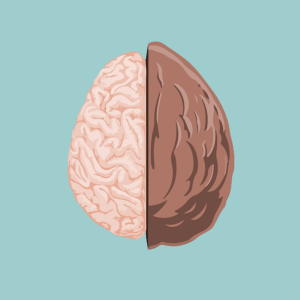
5.1M
Downloads
247
Episodes
I’m Emma McAdam, a Licensed Marriage and Family Therapist and my mission is to make mental health resources more easy to access. I take therapy skills and psychological research and condense them down into bite-sized nuggets of help. I’m here to spread the message that while mental illness is real, it’s common, it’s debilitating, it’s also treatable. There are dozens of research-backed approaches to treating depression, anxiety, and other mental illness. Change, growth, and healing are possible. Please keep courage! Try one little thing every day to improve your life and health and things can get so much better! Therapy in a Nutshell, and the information provided by Emma McAdam, is solely intended for informational and entertainment purposes and is not a substitute for advice, diagnosis, or treatment regarding medical or mental health conditions. Although Emma McAdam is a licensed marriage and family therapist, the views expressed on this site or any related content should not be taken for medical or psychiatric advice. Always consult your physician before making any decisions related to your physical or mental health. Therapy in a Nutshell and it’s logo are Registered Trademarks of Therapy in a Nutshell, LLC
Episodes

Tuesday Jul 14, 2020
Sleep Hygiene: Train your Brain to Fall Asleep and Sleep Better
Tuesday Jul 14, 2020
Tuesday Jul 14, 2020
Sleep hygiene is an essential mental health skill. When my clients come in for treatment for some of their challenges like depression, anxiety, or relational problems, one of the most common associated problems that they have is difficulty sleeping. This shows up as having a hard time falling asleep, staying asleep, or just feeling tired all the time. Getting enough quality sleep can make your brain function much better. You’ll be better at solving problems and feel more self-control.
In this video we’re going to talk about how to train your brain to sleep well. This is called sleep hygiene Sleep is essential for good mental health. Lack of sleep can actually cause mental illness. Research is showing that one of the most effective ways to treat depression is by helping people improve the quality and quantity of their sleep. One study of people with depression found that after resolving their insomnia, 87 percent of them experienced major improvements in their depression, and their depression symptoms disappeared after eight weeks of good sleep. https://www.nytimes.com/2013/11/19/health/treating-insomnia-to-heal-depression.html So how do we improve our ability to get sleep? We can train our brains to sleep better. Sleep hygiene means going through a routine that trains your body to know when to sleep. Like a muscle that strengthens with practice, sleeping well is a skill we can develop. Here are some essential skills to develop better sleep.
Looking for affordable online counseling? My sponsor, BetterHelp, connects you to a licensed professional for $65/week. Try it now for 10% off: https://betterhelp.com/therapyinanutshell
Learn more in one of my in-depth mental health courses: https://courses.therapyinanutshell.com/?utm_source=podcast&utm_medium=07142020
Support my mission on Patreon: https://www.patreon.com/therapyinanutshell
Sign up for my newsletter: https://www.therapyinanutshell.com?utm_medium=YTDescription&utm_source=podcast
Check out my favorite self-help books: https://kit.co/TherapyinaNutshell/best-self-help-books
Therapy in a Nutshell, LLC, and the information provided by Emma McAdam are solely intended for informational and entertainment purposes and are not a substitute for advice, diagnosis, or treatment regarding medical or mental health conditions. Although Emma McAdam is a licensed marriage and family therapist, the views expressed on this site or any related content should not be taken for medical or psychiatric advice. Always consult your physician before making any decisions related to your physical or mental health.
In therapy I use a combination of Acceptance and Commitment Therapy, Systems Theory, positive psychology, and a bio-psycho-social approach to treating mental illness and other challenges we all face in life. The ideas from my videos are frequently adapted from multiple sources. Many of them come from Acceptance and Commitment Therapy, especially the work of Steven Hayes, Jason Luoma, and Russ Harris. The sections on stress and the mind-body connection derive from the work of Stephen Porges (the Polyvagal theory), Peter Levine (Somatic Experiencing) Francine Shapiro (EMDR), and Bessel Van Der Kolk. I also rely heavily on the work of the Arbinger institute for my overall understanding of our ability to choose our life's direction. And deeper than all of that, the Gospel of Jesus Christ orients my personal worldview and sense of security, peace, hope, and love https://www.churchofjesuschrist.org/comeuntochrist/believe
If you are in crisis, please contact the National Suicide Prevention Hotline at https://suicidepreventionlifeline.org/ or 1-800-273-TALK (8255) or your local emergency services.
Copyright Therapy in a Nutshell, LLC
Music licensed from www.Bensound.com or Artlist.io Images from Freepik.com (premium license), Pixabay, or Wikimedia commons

No comments yet. Be the first to say something!